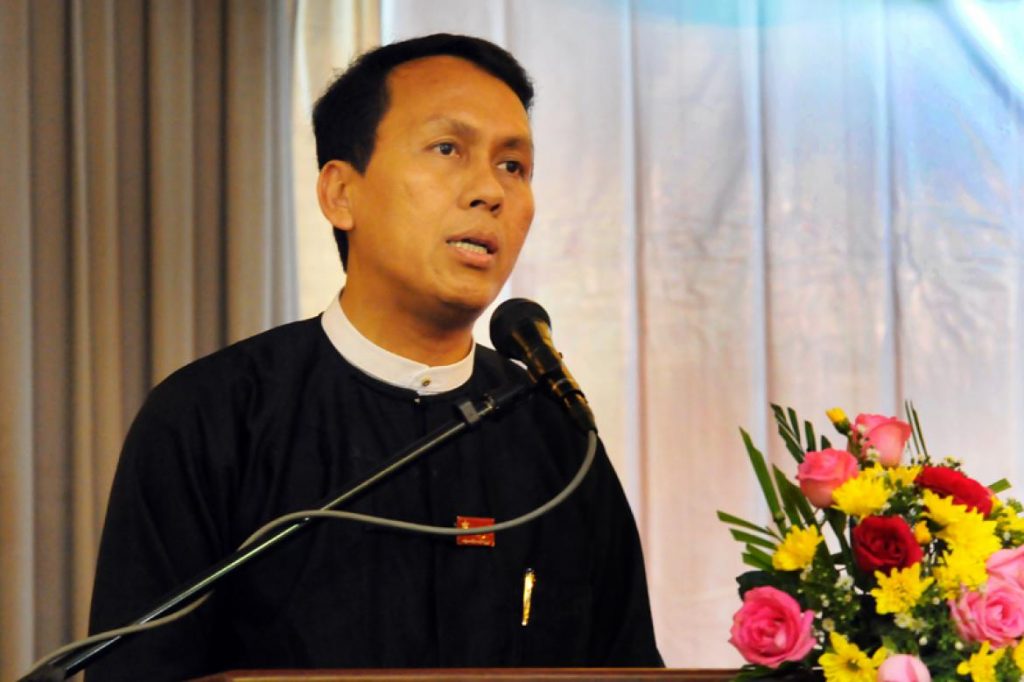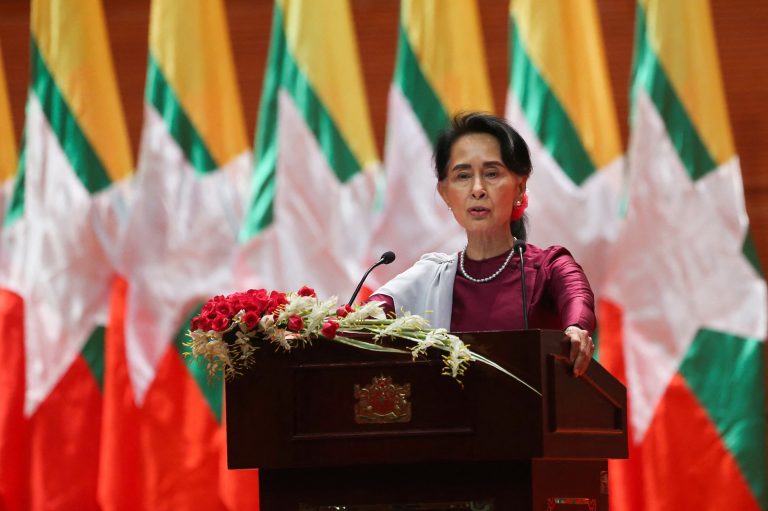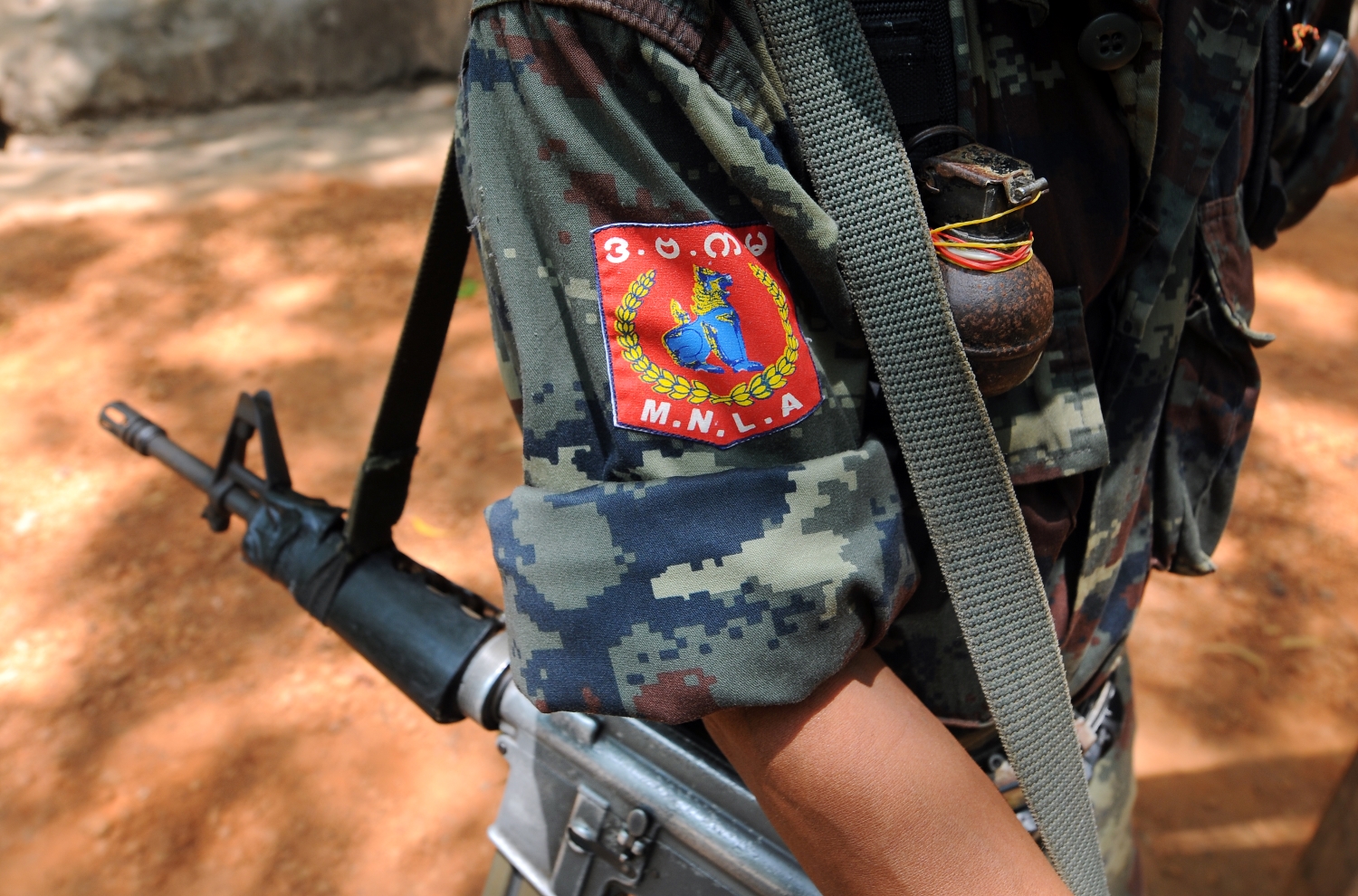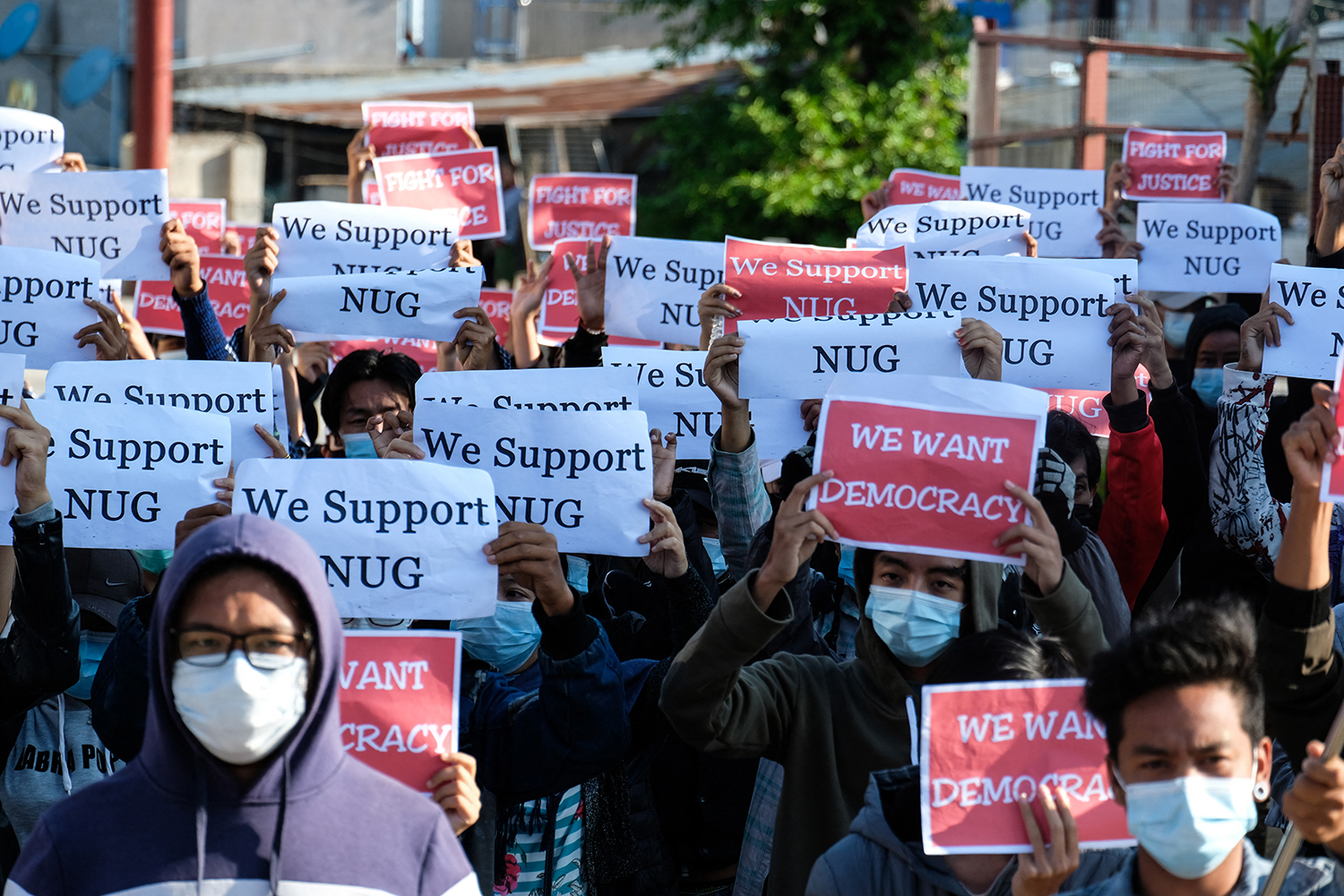By SU MYAT MON | FRONTIER
YANGON — U Phyo Min Thein has used a function marking the International Day of Democracy to make a renewed call for charter reform, telling an audience Thursday that constitutional change was needed in order for Myanmar to be a “genuine” democracy.
Speaking to a 200-strong crowd at Yangon’s Summit Parkview Hotel, the Yangon chief minister said Myanmar could not be considered truly democratic until its constitution was properly endorsed by its people and guaranteed freedom for all of the country’s citizens.
He added that after decades of struggle culminating in last year’s election, there was a widespread fear the country could lapse back into dictatorship, and said the government was committed to economic development in order to safeguard democratic reform.
“This democracy, we did not achieve easily,” he said. “To have a strong democracy, we need to work hard, but if there’s no development, then our democracy cannot be solid.”
Support more independent journalism like this. Sign up to be a Frontier member.
Myanmar’s junta-drafted Constitution, ratified by a questionable nationwide vote in 2008, has been criticised for entrenching military political power and centralising decision-making in Nay Pyi Taw.
Any change to the charter requires the assent of the Union Parliament’s military bloc, which controls one quarter of the assembly’s seats.
After leading a petition drive to remove the military’s veto over constitutional change while in opposition, the National League for Democracy has tempered its calls for charter reform.
In June, Pyithu Hluttaw Speaker U Win Myint told reporters in Nay Pyi Taw that amendment proposals would not be considered until later in the government’s term.
Non-state armed groups, most of which participated last month in the government’s 21st Century Panglong Conference, have long called for federal reform of the Constitution.
Dr. Tin Myo Win, the government’s chairperson of the National Reconciliation and Peace Centre and one of its chief negotiators with insurgent groups, told Thursday’s audience that a lasting peace settlement would be needed to sustain Myanmar’s democratic transition.







